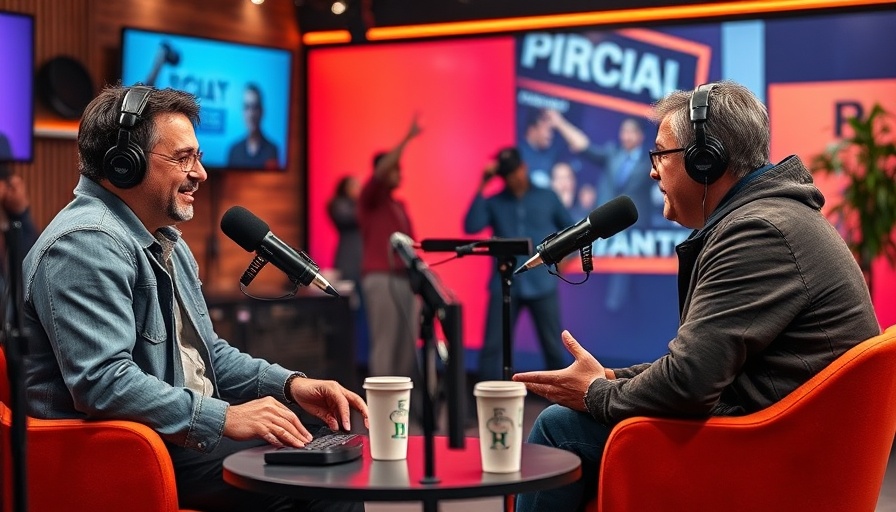
The Complexities of Discussing Israel: Insights from a Controversial Interview
The recent interview with Israeli Prime Minister Benjamin Netanyahu has ignited a significant backlash, particularly among those who align with the progressive viewpoint. As noted in the heated discussions surrounding the topic, there seems to be a strong divide forming between perceptions of Israel and the reality of the situation on the ground. This article will explore why this interview, despite its controversial nature, raises essential questions about activism, identity, and misinformation.
In The Real Reason I Interviewed Netanyahu, key insights were uncovered that prompted us to analyze the backlash surrounding the interview and its implications for activism and social dialogue.
Understanding the Backlash: Why Some Voices Matter
As discussed in The Real Reason I Interviewed Netanyahu, the backlash directed at those supporting Israel raises questions about the louder, more radical voices dominating contemporary discourse. The interviewee highlights how certain activists, especially within the Black community, are drawn into complex geopolitical conflicts without fully understanding their historical nuances. This forms a broader conversation about how misinformation can inflame tensions and result in social divisions.
Identity and Activism: Focus on Home or Abroad?
One compelling argument made during the interview is that activists within the Black community should prioritize local struggles rather than engaging in international conflicts, such as those between Israel and Palestine. This perspective urges individuals to concentrate efforts on the issues affecting their communities directly, shedding light on the complexity of identity and how often activists find themselves embroiled in foreign affairs that do not resonate with their lived experiences.
The Intersectionality of Historical Struggles
Another vital aspect raised in the conversation is the historical relationship between Black and Jewish communities, particularly during the civil rights movement. The discussion posits that both communities have often supported each other in their respective fights against oppression. By disassociating these historical ties, some voices might misrepresent their shared narrative, overlooking a crucial degree of solidarity that has existed.
Actionable Insights for a Balanced Discourse
In light of the backlash against the interview with Netanyahu, it becomes imperative for individuals, particularly those engaging in activism, to consider doing thorough research before speaking on complex issues. Encouraging a balanced dialogue about Israel and Palestine, rooted in personal experience and historical context, can foster healthier exchanges. It brings forth the responsibility of all voices—not just the loudest—to contribute thoughtfully rather than reactively.
As we navigate these challenging waters, it's essential to embrace a nuanced perspective, showing respect for diverse viewpoints while focusing on truths rooted in history and personal experiences. This will help pave the way for constructive conversations around contentious topics impacting our world.
Join in the conversation about how we can foster better understanding and how activism can be directed to create change in our communities while still acknowledging the complexities of global affairs. Let's focus on actions that build rather than divide.
 Add Row
Add Row  Add
Add 




Write A Comment